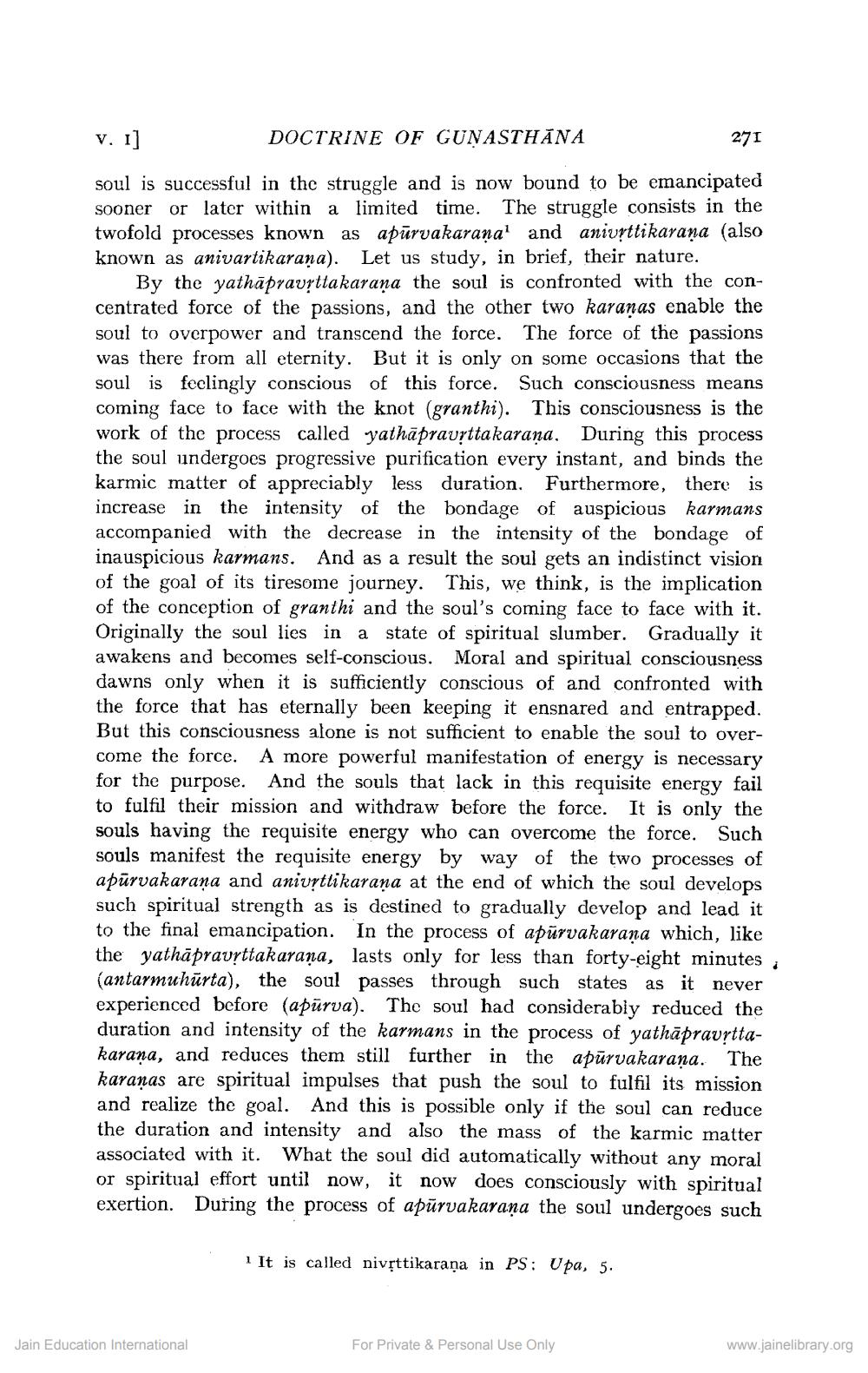________________
v. 1]
DOCTRINE OF GUNASTHĀNA
271
soul is successful in the struggle and is now bound to be emancipated sooner or later within a limited time. The struggle consists in the twofold processes known as apūrvakarana' and anivrtti karana (also known as anivartikarana). Let us study, in brief, their nature.
By the pathāpravrttakarana the soul is confronted with the concentrated force of the passions, and the other two karanas enable the soul to overpower and transcend the force. The force of the passions was there from all eternity. But it is only on some occasions that the soul is feelingly conscious of this force. Such consciousness means coming face to face with the knot (granthi). This consciousness is the work of the process called yathāpraurtta karana. During this process the soul undergoes progressive purification every instant, and binds the karmic matter of appreciably less duration. Furthermore, there is increase in the intensity of the bondage of auspicious karmans accompanied with the decrease in the intensity of the bondage of inauspicious karmans. And as a result the soul gets an indistinct vision of the goal of its tiresome journey. This, we think, is the implication of the conception of granthi and the soul's coming face to face with it. Originally the soul lies in a state of spiritual slumber. Gradually it awakens and becomes self-conscious. Moral and spiritual consciousness dawns only when it is sufficiently conscious of and confronted with the force that has eternally been keeping it ensnared and entrapped. But this consciousness alone is not sufficient to enable the soul to overcome the force. A more powerful manifestation of energy is necessary for the purpose. And the souls that lack in this requisite energy fail to fulfil their mission and withdraw before the force. It is only the souls having the requisite energy who can overcome the force. Such souls manifest the requisite energy by way of the two processes of apūrvakarana and anivetlikarana at the end of which the soul develops such spiritual strength as is destined to gradually develop and lead it to the final emancipation. In the process of apūrvakarana which, like the yathāpravrttakarana, lasts only for less than forty-eight minutes (antarmuhūrta), the soul passes through such states as it never experienced before (apürva). The soul had considerably reduced the duration and intensity of the karmans in the process of yathāpravrttakarana, and reduces them still further in the apūrvakarana. The karanas are spiritual impulses that push the soul to fulfil its mission and realize the goal. And this is possible only if the soul can reduce the duration and intensity and also the mass of the karmic matter associated with it. What the soul did automatically without any moral or spiritual effort until now, it now does consciously with spiritual exertion. During the process of apūrvakarana the soul undergoes such
1 It is called nivșttikarana in PS: U pa, 5.
Jain Education International
For Private & Personal Use Only
www.jainelibrary.org




